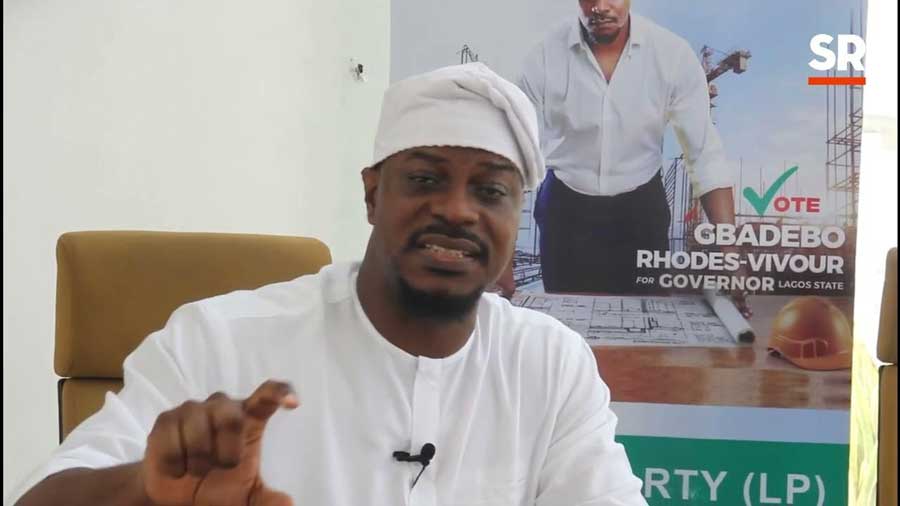Peter Obi's Brother's Property Demolished in Lagos

The alleged demolition of a company property belonging to the younger brother of former Labour Party presidential candidate, Peter Obi, in Ikeja, Lagos, has ignited significant controversy and widespread condemnation. The incident, which Obi described as unlawful and a reflection of Nigeria's growing descent into lawlessness, has drawn strong reactions from prominent political figures and activist lawyers alike. This event has not only brought to the fore deep concerns about property rights but also sparked a broader discussion on the sanctity of the rule of law and its implications for investment in the country.
Peter Obi recounted the distressing experience, stating that his youngest brother was frantically informed that his company property, which had stood for over 15 years, was being pulled down by unidentified agents. Upon visiting the site in Ikeja, Obi stated he was almost barred by security operatives and was shown a purported court judgment against an “unknown person” and squatters. He vehemently challenged the legitimacy of this judgment, emphasizing that no one was served, no specific name was written, and no valid demolition order or permit was presented. Furthermore, Obi alleged that his brother was denied entry to retrieve any belongings before the demolition began. He expressed profound alarm over the growing disregard for the rule of law, warning that such brazen violations of due process actively discourage local and foreign investment. Obi underscored his concern that if such an incident could happen to someone of his stature, ordinary Nigerians would be even more vulnerable, emphasizing that the incident reflected a dangerous pattern threatening democracy and human dignity.
Reacting to the development, Gbadebo Rhodes-Vivour, former Labour Party governorship candidate in Lagos, expressed deep sadness over what he called a “level of lawlessness and recklessness.” He characterized the demolition as a “notorious pattern of irresponsibility” by the ruling party, asserting that such actions contribute significantly to the exit of multinational corporations and a drought in foreign direct investments, ultimately leading to job losses and exacerbating poverty rates. Rhodes-Vivour stressed that Lagos must uphold property rights and strictly adhere to the rule of law, criticizing what he termed “juvenile and myopic politicians” preoccupied with extracting personal gain from the system. Similarly, activist lawyer Deji Adeyanju questioned the rationale behind demolishing a property without allowing the owner to remove their belongings. He condemned the situation as a form of political intolerance and a misuse of power that severely erodes public trust in governance.
In response to Peter Obi’s lamentations and the subsequent public outcry, Wale Ajetunmobi, Special Assistant on Media to Governor Babajide Sanwo-Olu of Lagos State, advised Obi to report the matter to the police. Ajetunmobi staunchly defended the Commissioner for the Environment and Water Resources, Tokunbo Wahab, stating that Wahab “won’t come out to answer questions about a demolition he never sanctioned.” He clarified that the commissioner’s job description does not include the issuance of court judgments or the demolition of distressed buildings, drawing a distinction between the removal of contraventions along drainage or canal rights-of-way and the alleged incident. Ajetunmobi urged the public to refrain from involving Wahab in the discussion, emphasizing that the party responsible for the demolition must be clearly identified, and if not, the police should be involved to investigate.
The incident has sparked broader concerns about the precarious state of property rights and the rule of law in Nigeria. Critics view the alleged demolition as symbolic of a “silent war” being waged against dissent and political opposition, potentially targeting Peter Obi due to his rising popularity and perceived challenge to the political status quo. The apparent lack of adherence to fundamental legal procedures, such as proper notice, valid court orders, and the clear identification of litigants, raises troubling questions about judicial integrity and accountability within the system. Many observers argue that such impunity fosters an environment of fear, actively discourages legitimate enterprise, and fundamentally undermines government efforts to attract foreign direct investment. This creates a challenging climate where basic citizens' rights are perceived to be routinely violated. The incident serves as a stark reminder that if influential figures like Obi’s family are susceptible to such arbitrary actions, the average Nigerian faces even greater insecurity. This has led to calls for citizens to demand institutional reform, judicial independence, and accountability across all tiers of government to prevent Nigeria from becoming a “lawless country” where justice is a luxury.








